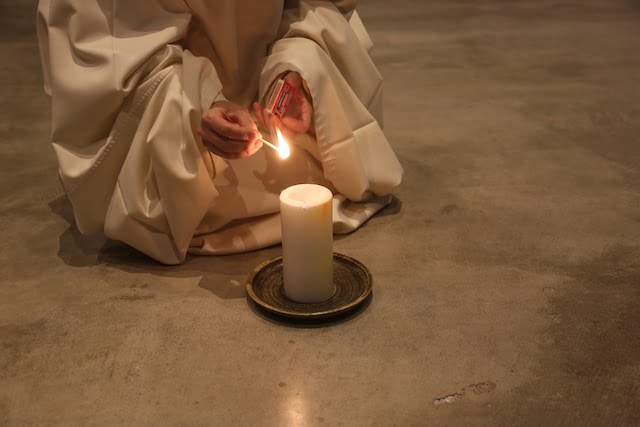Chapter Talk – 28th Sunday of the Year – October 11, 2020, cycle-A
Once again, we have a parable that Jesus uses to teach the word of God. The parable for this 28th Sunday is a wedding feast that a king has prepared for his son. If we were to do a scholarly review of the text, we would see that the early church used this parable by adding on its own moral precepts through inserting allegory into the parable. There is nothing ‘wrong’ with this, but it can elude the underlying meaning of Jesus’ message in this particular parable. For example: the servants sent out to invite people are ‘mistreated’ and some ‘killed’. And then the king sends ‘his troops’ who go and ‘kill those murderers’. So: what happens to Jesus’ earlier teaching on ‘Love your enemies’…and ‘if you are struck on one cheek, offer your other cheek’? Remember in an earlier chapter talk I mentioned that the Jesuit scripture scholar Fr. John Donahue stated that Jesus in his parables disorients us in order to orient our minds and hearts to see as God sees. Jesus disorients human ways and he challenges the old way of ‘an eye for an eye and a tooth for a tooth’ with the radical call for love…indeed our love must extend to include our enemies.
With Jesus’ teaching we always have the task to look first inward, which then enables us to see more clearly outward. The inward process is to open us up more to the mercy and compassion of God, to the wide breadth of God’s large horizon of inclusion and compassion. Thus, in this parable, we first turn inward: God is inviting us to a feast. Will we accept the invitation? What is it that would make us refuse? What blocks or resistances are lingering in our inner life to push away this Divine invitation? What about the eye of the heart? Is it clouded over with fears and anxieties? When we go ‘low’, that is, refuse God’s invitation, the nature of God is to go ‘higher’: higher in mercy, higher in compassion, higher in the love that forgives. God will not stop reaching out and will not stop knocking on the door of our hearts. Thus, we see that the king in this parable does not stop after those invited excuse themselves and do not come to the wedding banquet. The king expands the invitation and thus guests in the end come and the wedding feast happens.
Pope Francis in his ‘Angelus’ talk said that the invitation to the wedding feast “has three characteristics: freely offered, breadth and universality” (October 12, 2014). These three characteristics give us a glimpse of the nature of God, the God that Jesus is bringing to us. God offers us gifts freely, for us to accept or refuse; God’s freely offered invitation is wide, it has the full breadth of compassion, of mercy, of inclusion; finally, the invitation is universal, it is not just for a small isolated community of believers. If these characteristics describe something of who the God of Jesus is, then it follows that our interior attitudes and consciousness must grow in becoming more like how God meets us, so that we in turn may meet our brothers and sisters out of the same openness and inclusion. Pope Francis says, “God is good to us, he freely offers us his friendship, he freely offers us his joy, his salvation; but so often we do not accept his gifts, we place our practical concerns, our interests first. And when the Lord is calling to us, it so often seems to annoy us” (Angelus, October 12, 2014). Even with the refusal by the invited guests or by us, God does not stop. God continues his offering; the Divine heart will not stop extending his gift of salvation.
We heard at vigil these words from Fr. Karl Rahner: “Each one must examine his or her heart and we will find enough things there which we use as excuses with God to avoid accepting God’s invitation” (The Great Church Year, p.300). God’s invitation – our refusal: our refusal says to God, ‘I am in charge’; the ego reigns thus in a dominant form. To switch or change this dynamic is to let God lead; each time we accept God’s invitation is walking as Jesus walked, is opening ourselves, is opening our hearts to a little more of God’s grace so that we, in turn, can be true ambassadors of Christ, led and guided by the breadth and depth of Divine love that Christ embodied…We sacrifice our program in order to give God’s invitation, God’s call in the moment the one thing that is essential and necessary. Will not such a movement of self-sacrifice bring us deeper into the Divine heart of love and mercy?
Sr. Kathy DeVico, Abbess


